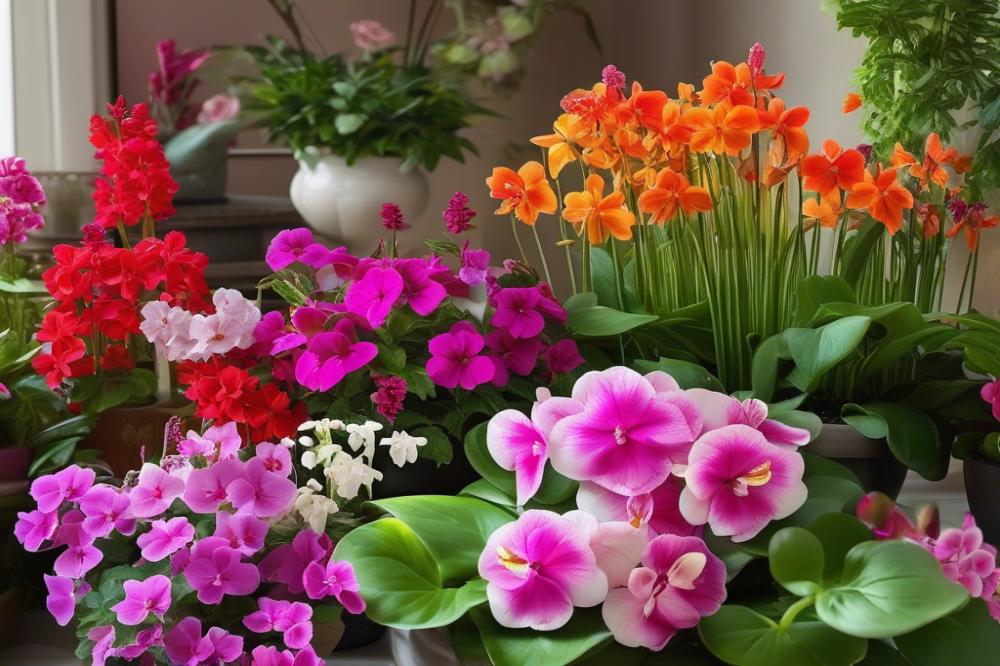Understanding organic rose fertilizer
Growing healthy rose plants is a rewarding hobby. The importance of using organic rose fertilizer cannot be understated. This type of fertilizer is made from natural sources, enhancing plant growth without harmful chemicals. Many gardeners are turning to eco-friendly options like homemade fertilizer to support their blooms sustainably.
Benefits abound when you choose to create your own fertilizer. Homemade solutions provide natural nutrients that promote vibrant flowers and lush foliage. With a little effort, you can make your plants stronger and more resilient. Moreover, this approach reduces waste and encourages sustainable gardening practices. Composting kitchen scraps and yard waste turns garbage into gold for your garden.
This article will explore the process of making DIY fertilizer specifically for rose care. You will learn the steps necessary to create nutrient-rich soil that feeds your plants effectively. Discover how organic methods can transform your gardening experience. By adopting these techniques, you contribute to a healthier environment while ensuring your roses thrive.
Understanding Organic Rose Fertilizer

Organic rose fertilizer is a natural way to nourish your rose plants. This type of fertilizer is made from compost, animal manure, and other natural materials. It works by providing essential nutrients that roses need to thrive. These components break down and enrich the soil over time, making it healthier for your plants.
Choosing organic methods has clear advantages over chemical fertilizers. Chemical options can harm beneficial microorganisms in the soil. These microbes play a vital role in promoting healthy plant growth. Additionally, chemical fertilizers might offer quick results but can lead to nutrient imbalances. On the other hand, organic fertilizers help create nutrient-rich soil that supports long-term health for your garden.
Natural nutrients are crucial for healthy plant growth. They support the overall well-being of rose plants, making them more resilient against pests and diseases. With organic gardening practices, you contribute to sustainable gardening efforts. Your garden becomes a thriving ecosystem rather than just a collection of plants. By using a DIY fertilizer, you’re not only enhancing the soil but also reducing waste by recycling natural materials.
Fostering a connection between your gardening practices and the environment is key. Eco-friendly choices help protect our planet for future generations. The benefits go beyond just your rose care; they impact the overall health of the garden. With each handful of organic matter, you’re investing in long-lasting vitality for both your plants and the Earth. In this way, homemade organic fertilizers become a valuable tool for every gardener eager to cultivate beauty and sustainability.
Essential Ingredients for Homemade Organic Rose Fertilizer

Creating your own organic rose fertilizer can be a rewarding experience. Starting with common kitchen scraps is a great way to make use of what you already have. Items like vegetable peels, eggshells, and coffee grounds can play an important role in your compost. These materials break down and enrich the soil with vital nutrients that roses need.
Using organic materials is crucial in building nutrient-rich soil. Grass clippings, dried leaves, or even old newspaper can be added to your compost pile. These components not only add nutrients but also improve soil structure. They help maintain moisture and promote healthy plant growth. When it comes to rose care, the quality of the soil matters greatly.
Natural Additives for Rose Plants
Consider using certain natural additives to truly benefit your rose plants. For instance, bat guano or fish emulsion provide a concentrated source of nutrients. Both options are rich in nitrogen, phosphorus, and potassium. These are key for strong root development and vibrant blooms.
Other great choices include bone meal and blood meal. Bone meal promotes root growth, while blood meal gives roses a quick nutrient boost. You may also look into using compost tea. This liquid fertilizer can be made by steeping compost in water and applying it around the base of your plants.
Engaging in sustainable gardening practices not only benefits your roses but the environment too. Every ingredient you use can support an eco-friendly approach. With a little effort, you can craft a DIY fertilizer that nourishes your garden while reducing waste. Remember, roses thrive when they receive the right balance of nutrients, so choose your ingredients wisely.
Step-by-Step Guide to Making Organic Rose Fertilizer

Collecting Ingredients
Start by gathering essential items. You can use kitchen scraps, like vegetable peels and fruit waste. Coffee grounds are excellent because they provide a good source of nitrogen. Eggshells, crushed finely, will offer calcium and help strengthen your rose plants. Don’t forget to add grass clippings or dried leaves; these materials improve compost quality. You can even collect tea bags for a boost of nutrients. A variety of natural components will create a balanced mix.
Balancing Nitrogen, Phosphorus, and Potassium
Focus on creating a blend that helps your roses thrive. The ideal ratio for rose care typically needs more nitrogen, phosphorus, and potassium. You might consider using blood meal or fish emulsion for a nitrogen boost. For phosphorus, add bone meal or rock phosphate. Potassium can come from wood ash or kelp meal. Keep these nutrients balanced for optimal plant growth. A good mix will promote strong blooms and healthier foliage.
Mixing and Composting Process
Mix all your collected ingredients in a large container or compost bin. Layer your components to encourage proper breakdown. Start with browns, like dried leaves, then add greens, which include kitchen scraps. Water the mixture lightly to maintain moisture but avoid soaking it. Turn the compost regularly, ensuring that air circulates through the pile. This aeration speeds up decomposition. In a few weeks, you will see the ingredients breaking down into a nutrient-rich soil.
Tips for Achieving Optimal Results
Enhancing your home-made fertilizer can improve its effectiveness. Consider applying compost tea, made by steeping your compost in water. This method extracts even more natural nutrients, making them readily available to your roses. When applying, do so during the growing season to support their needs. An eco-friendly approach to gardening fosters a healthy environment for all plants. Regularly monitor your roses for signs of nutrient deficiency, adjusting your fertilizer schedule as necessary. Using this DIY fertilizer will lead to beautiful blooms and a vibrant garden.
Applying Organic Rose Fertilizer in Your Garden

Best Practices for Application
Begin by preparing your soil before applying any fertilizer. It helps to mix the organic compost into the top few inches of soil around your rose plants. This process allows natural nutrients to penetrate the roots effectively. Scatter the DIY fertilizer evenly around the base of each plant. Avoid putting it directly against the stems to prevent any possible damage. Water the area well after application, as moisture helps activate the nutrients.
Timing and Frequency for Feeding Rose Plants
The best time to feed your rose plants is during their active growing season. Spring is ideal, as it encourages strong plant growth and blooming. A second feeding can be done in mid-summer to keep the plants thriving. Aim to apply fertilizer every four to six weeks during these peak times. Tracking the health of your rose plants can guide you on when to feed them more or less. Look for signs of stress or poor growth, and adjust the timing based on their responses.
Incorporating into Sustainable Gardening Routines
Integrating organic rose fertilizer into your gardening practices supports eco-friendly methods. Using natural ingredients reduces reliance on chemical options. This approach not only benefits your roses but also promotes healthy, nutrient-rich soil. Consider creating a schedule that aligns with your overall garden care. Pairing fertilization with composting can enhance soil quality and increase water retention. These techniques contribute to sustainable gardening and the health of the entire ecosystem. Help your plants thrive by being consistent in your care and monitoring their needs closely.
Advantages of DIY Organic Rose Fertilizer
Making your own organic rose fertilizer offers substantial savings. Store-bought options can be pricey and often contain chemicals. By creating a DIY fertilizer, you significantly cut costs while promoting sustainable gardening practices. This approach not only benefits your wallet, but it also enhances the health of your garden.
Eco-friendly gardening is becoming increasingly important. When you use natural nutrients, you reduce harmful impacts on the environment. Homemade compost is a fantastic way to nourish rose plants without synthetic additives. Each ingredient you choose contributes to a greener planet.
Personalizing your fertilizer is another major advantage. Different rose care methods require various nutrients. By creating your own blend, you address the specific needs of your plants. This tailored approach enhances plant growth, ensuring your roses receive the best care possible.
Using organic materials allows you to enjoy nutrient-rich soil. Healthy soil leads to vigorous growth and more beautiful blooms. Composting kitchen scraps or yard waste can provide your garden with a steady supply of valuable nutrients.
Feeling connected to your garden is one of the most rewarding aspects of organic gardening. The satisfaction of seeing your roses thrive can be exhilarating. Handcrafting a DIY fertilizer not only fosters that connection but also instills a sense of pride in your gardening journey.
Troubleshooting and Tips for Successful Rose Care
Common Challenges When Using Organic Fertilizer
Organic gardening comes with its perks, but issues may arise. Sometimes, homemade compost might lack balance. This can lead to poor rose plants struggling to thrive. Remember, natural nutrients take time to break down. Therefore, patience plays a key role in the process. If you notice stunted growth, it might be a sign of insufficient feeding. Investigate your fertilizer’s components. Finding the right mix can make a world of difference in plant growth.
Signs of Nutrient Deficiencies in Rose Plants
Keep an eye on your roses for subtle signs of distress. Yellowing leaves can indicate nitrogen deficiency. Likewise, if leaves develop a purple hue, phosphorus may be lacking. Inspect the stems, too; weak or spindly stems often point to nutrient shortages. Regularly check blooms as well; poor flowering suggests your plants need more nourishment. By identifying these symptoms early, you can take action before severe damage occurs.
Adjusting Your Approach for Different Rose Varieties
Not all rose varieties need the same care. Old garden roses may prefer richer, more compost-heavy soil. In contrast, some modern hybrids thrive on lighter, well-draining mixes. Understanding the specific needs of each type is crucial. Always research to discover what works best for your chosen species. Additionally, adjusting your DIY fertilizer can help meet these unique demands. Be flexible in your gardening approach to achieve success with sustainable gardening.
Wrapping Up Your Journey to Vibrant Roses
The benefits of making and using homemade fertilizers are impressive. Not only do they enrich the soil, but they also promote healthy growth in your roses. By opting for organic solutions, you support a healthier ecosystem. Roses that receive proper nutrients will thrive and bloom brilliantly.
Integrating organic gardening practices into your routine will enhance your rose care. This approach not only nourishes your plants but also makes gardening more rewarding. A commitment to organic methods can cultivate a sense of pride. Watching your roses flourish because of your efforts is truly satisfying.
Take a moment to reflect on the joy that comes from nurturing a thriving rose garden. Each bloom represents your hard work and dedication. Encourage yourself to experiment with different organic materials and techniques. Over time, you’ll discover what works best for your unique garden. Keep learning, stay patient, and enjoy the beautiful results of your labor.



